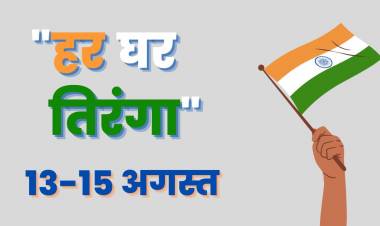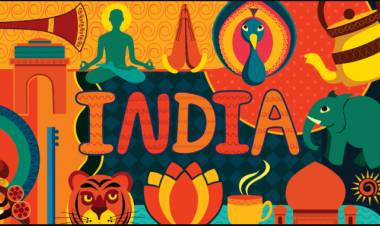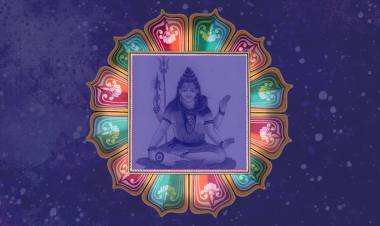Will This Conflict Affect India’s defence deals with Russia?

From long-standing border disputes to the Kremlin aiming to rewrite the power dynamics in its own backyard, Ukraine as a country has barely been able to enjoy its sovereign status. Ukraine has always been closely influenced and aided by the US, and Russia has been vehemently opposed to it, citing security concerns. Thus, Russia tried to portray Ukraine as a “failed state” to bolster its decision of declaring the separatist-held regions of Donetsk and Luhansk as an independent. In two official decrees, the Russian President instructed his defence ministry to assume “the function of peacekeeping” in the Donbas region of Ukraine.
This move triggered an avalanche of condemnation from around the world where stakeholders rubbished Russia’s peacekeeping claims, while Russia chipped away at Ukraine’s sovereignty to further strengthen its image at home and in the region. However, the issue is much bigger than just Russia, Ukraine and the US, as it delves into the territory of renegotiation of world order as a delayed reaction to the power blocks created post-Cold War.
How is India dealing with the Russia-Ukraine escalation?
India certainly has a difficult task at the moment and whichever way it moves it is going to displease one or the other. Ideally, India’s UNSC statements are pretty bland. “Look, we want to defuse the escalations…vital interest of all countries should be respected,” etc, are all fine but the reality is that this is not how the world is working.
India has good relations with both sides. It is a partner of the West, as well as the European Union. It wants America and Europe to be engaged in the Indo-Pacific to help India navigate around China. India, at the same time, has historical defence relations with Russia.

Russia's foreign policy is largely based on an anti-West narrative and perception. Its closeness with China is remarkable and has grown, despite China and Russia not being natural partners. With them, we look at a relationship that is expansive. Vladimir Putin’s recent visit to China proves that.
In the long term, if the present scenario continues, we will see India moving away from Russia if it continues to get cosier with China. But, in the short term, India has to maintain a balance between the US and Russia. India is not going to jeopardise its relationship with either of the two sides and in some ways, India taking one stance or the other won’t change the ground reality.
The ground situation is being shaped by what Russia is doing and how the West is responding. If the US had played its cards better, they would not have seen this kind of entanglement between the Russians and Chinese. The West has been obsessed with Russia since the word go and China has blatantly utilised and creamed this rift for mutual benefits.
India’s role of the hour and for the future would be to largely shape Western attitude towards Russia. Antagonising Russia in the long term won’t do India any good but there is little India can do in the short term.
Does the growing friendship between Russia and China signify a shift in the world order?
World order is never static. It is always evolving and in some ways, the world order in the immediate aftermath of the Cold War was a unique moment in global politics, where there was such a huge dominance by one particular country in every respect — military, technological, political and diplomatic. It was quite extraordinary as a unipolar moment. Alas, moments don’t last forever.
America is still the predominant power in the world but other powers have also risen, China in particular. The problem here is, China is challenging some of the fundamental building blocks of the order that were created during World War II and I think the West woke up to the China challenge very late.

Now, the challenge is, on the one hand, you have China posing a massive strategic hurdle in the Indo-Pacific, on the other hand, you have the whole of Eurasia, whose borders created post-1990 is not settled yet.
Russians have long complained about this. NATO expanding to their doorsteps was something unacceptable as Russian security was being jeopardised. However, Europeans and Americans were not particularly bothered about Russian interests. This means, now, Putin can push back and create trouble for the West in their own backyard, like they are doing in Ukraine.
This situation at hand is much bigger than in Ukraine. It is about the geopolitical order in Europe post-Cold War and how Russia is demanding a renegotiation of the order. The interests of Russia and China converge in that respect.
Russia today is certainly not the traditional great power but it has enough mettle to create problems for the West. Coupled with China, it poses the ultimate strategic challenge for the US and the latter has gradually come to realise it. The US knows that there are going to be significant issues for the Western-led global order if something is not done about China. Whether the US can accommodate the interests of Russia while focusing on China remains to be seen.
The post-Cold War order is undergoing a fundamental transformation due to what is happening today. The rise of China and renegotiation of the status quo is creating a lot of flux in the system. Russia and China coming together is part of the larger story that needs deft handling. Unless the US is able to find a kind of strategic logic in its grand strategy, it would be very difficult for them to manage this particular moment where Russia and China are intent on challenging the global order fundamentally, as it exists today.
How legitimate do you think the situation is? Will further attacks take place? What does Putin identifying the separatist regions and his proposal/clarification of ‘peacekeeping entail?
It indicates that Putin is going all out to challenge the West on its statement, that he has no intention of backing down now, that it’s a matter of political resolve between Russia and the West. Putin feels that he cannot back down and in many ways, he can’t because one of the main reasons for his domestic political legitimacy is his perceived ability to stand up to the West. He is popular at home because he has managed to whip up hyper-nationalist fervour against the West. He is seen as the guarantor of the motherland. I don’t think Putin would be willing to back down now.
If you liked this post, I’d be very grateful if you’d help it spread by emailing it to a friend or sharing it on Twitter or Facebook. Do not forget to like us on Facebook and follow us on Instagram. Send your entries too…
Thank You
Aashi Harita



























Comments (0)